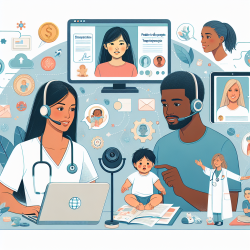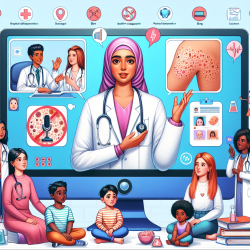The recent study titled "Health literacy as a key to improving weight status among Palestinian adolescents living in chronic conflict conditions: a cross-sectional study" sheds light on the significant role health literacy plays in moderating the effects of violence on adolescent weight status. Conducted in a Palestinian district of the West Bank, this research offers valuable insights for practitioners aiming to improve their skills and promote better health outcomes among adolescents.
The Impact of Violence on Adolescent Health
Adolescents living in conflict zones are often exposed to various forms of violence, which can have long-term health implications. The study found that 62% of the adolescents surveyed were directly exposed to violence, with a prevalence of obesity and overweight at 6.5% and 17.1%, respectively. This exposure to violence is associated with unhealthy behaviors, including poor dietary habits and increased consumption of sugar-sweetened beverages (SSBs).
The Moderating Role of Health Literacy
Health literacy emerged as a crucial factor in moderating the relationship between violence exposure and weight status. Adolescents with higher levels of health literacy demonstrated lower obesity rates, even when exposed to violence. Specifically, those with high functional health literacy had 62% lower odds of obesity when exposed to domestic and school violence.
This finding underscores the importance of integrating health literacy into educational and healthcare systems. By equipping adolescents with the knowledge and skills necessary to make informed health decisions, practitioners can help mitigate the adverse effects of violence on their health.
Actionable Insights for Practitioners
- Integrate Health Literacy into Education: Schools play a pivotal role in developing students' health literacy skills. Incorporating health literacy into the curriculum can enhance critical thinking, decision-making abilities, and self-awareness among students.
- Promote Healthy Coping Mechanisms: Adolescents need support to develop healthy coping strategies that help them manage stressors related to violence exposure. Practitioners can play a key role in guiding them towards healthier lifestyle choices.
- Engage Parents and Healthcare Professionals: Training programs targeting parents and healthcare providers can improve communication and delivery of health information to adolescents, fostering an environment conducive to better health outcomes.
- Advocate for Policy Changes: Policymakers should prioritize reducing domestic and school violence through legislation and community interventions. Creating a safe environment is essential for promoting adolescent well-being.
The Need for Further Research
This study highlights the need for further research at a national level to deepen our understanding of how health literacy affects adolescent health outcomes. Future studies should explore indirect exposure to violence and its impact on weight status, as well as investigate other forms of violence not covered in this research.
The findings from this study provide valuable evidence for practitioners aiming to enhance their skills and promote better health outcomes among adolescents. By focusing on improving health literacy, practitioners can make a significant impact on the well-being of young individuals living in challenging environments.










